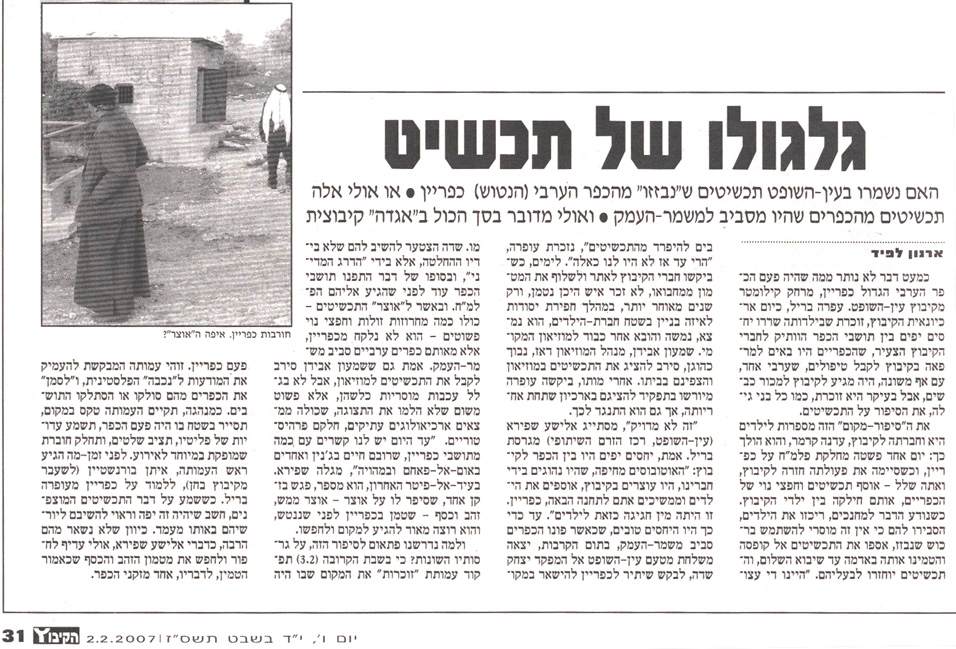Perhaps it is indeed a kibbutz legend and the items now held by the residents of En Ha-Shofet never belonged to Arabs from al-Kafrayn ("Chronicles of a Piece of Jewelry," Arnon Lapid, Feb. 2, 2007). So what? As always, the legend, the myth, is far more important than its "true" source. The legend recounts the looting of Palestinian villages in the En Ha-Shofet area by members of the Hagana, and the loot that was then presented as gifts to the children of the kibbutz. The adults, repelled, chose to bury the items so they could return them to their owners "when peace will come," as some have said. The older members of the kibbutz also say that they had enjoyed good relations with their neighbors from al-Kafrayn. All this is recounted to the children of the kibbutz as a story having an important moral: Even in war it is forbidden to plunder from one's enemy.
Even during the 1948 war, many kibbutz members were furious about the looting that took place in every area where Palestinians were expelled, or where Palestinians were coerced to leave in fear of the horror. But still, many kibbutzim happily accepted the lands of those abandoned Palestinian villages from the state. Some even harvested the same year's crop from fields they did not sow. In other words, it is acceptable to profit from the looting of the land without contrition. It isn't nice to take different items, some of them valueless.
When I first heard about the plundered items residing with En Ha-Shofet members, I suggested they return them. I thought that this was an opportunity to begin a reverse process: from theft to returning. True, it is merely a symbolic act, seemingly insignificant, but this is the process that we ought to begin nearly 60 years after the Nakba. To acknowledge what we stole and to return what can be returned.
It is impossible to turn back the wheel of history by this act. But without taking responsibility for our part in the horrors of the Nakba, there will never be peace here. Instead of saying: "We will return them – jewels, lands, refugees – only when peace will come," we should consider: "We will return them, so that peace can come."
This coming Saturday, February 10, 2007, we are organizing a tour of al-Kafrayn, open to the public, in which we will meet with refugees from the village and hear their stories. It may be a small step in the direction of conciliation with them and their descendants.



